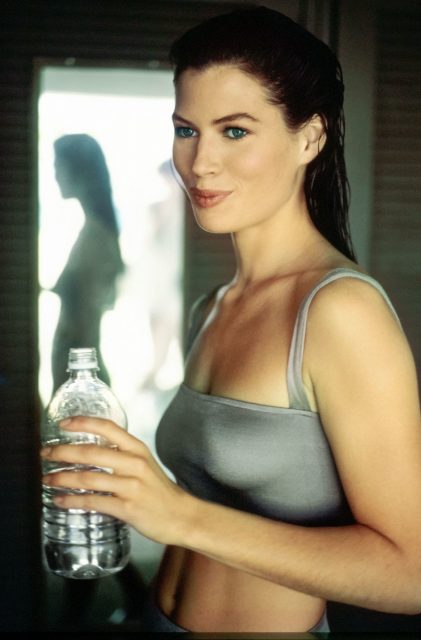The future of fashion promoting sustainable practices is essential in efforts to reverse the effects of climate change, and the industry’s biggest players, from Prada to Adidas, are taking note. Change is slowly coming about, being implemented into everything from design techniques to the production chain. Below, see the best designers right now paving the way to a more responsible future.
Elliss
Kevin Germanier
Swiss designer Kevin Germanier’s BA graduate collection featured 80’s disco-inspired partywear, bedazzled with beads he rescued from demolition during his six-month stint in Hong Kong after winning the 2015 EcoChic Design Award. Germanier then went on to debut his eponymous label in 2018, with notions of up-cycling consistent throughout his collections, to create garments of utopian glamour that denounce the minimalistic reputation of eco-friendly labels. Repurposed tie-dye shirts and up-cycled brocades were transformed into glittered and sequinned frocks for Autumn/Winter 2019.
Marine Serre
You may already recognise Marine Serre from the brand’s ubiquitous crescent moon printed tops and catsuits worn by the likes of Kendall Jenner, Chloe Sevigny and BlackPink’s Jennie. The 2017 LVMH Prize winner and Paris-based designer’s futuristic collections are environmentally aware, with up-cycling at the heart of her last few collections. Sourcing discarded scarves, used shirts and wetsuit materials, Serre has a distinct ability to hone subversions and cultural expressions into utilitarian wear, from sculpted parkas to panelled dresses, that speak to the future.
Matty Bovan
Reformation
Anyone on Instagram will have seen the sexy-cute dresses of cult-favourite brand Reformation, worn by everyone from Rihanna to Sasha Obama. The LA-based label’s pieces – with their universally flattering silhouettes and pretty colours – are just as stylish as they are sustainable, created out of repurposed vintage, salvaged overstock and plant-based fabrics. It doesn’t stop there — founder Yael Aflalo’s mission to recast ethical fashion as desirable and chic extends into all areas of her green business model. From eco-friendly packaging to green building infrastructures that minimise energy footprints, Reformation has sparked a quiet revolution in the way we shop and think when it comes to the meaning of sustainability in fashion.
Richard Malone
The London-based designer and LVMH scholarship winner tackles mass production involved in the industry by limiting waste and repurposing unlikely materials to build his collections. Known for his sculptural designs, Richard Malone sources natural fabrics and works with a community of female artisans in Southern India to hand-weave and naturally dye the vivid colours and abstract prints seen sauntering down his runways. His most recent Brexit-anxious collection used recycled organic cotton jersey to create patterned dresses and signature flared-pant suits cut from precisely one metre of fabric to avoid as much waste as possible.
Veja
Sébastien Kopp and François-Ghislain Morillion launched Veja in 2005 with a strong focus on transparency, fair-trade and social and environmental responsibility. With sneakers being such an integral part of modern life, the pair wanted to design ecological, everyday footwear that had a positive impact. Responsibly sourced and produced in Brazil, Veja’s minimalistic kicks are made out of bio-degradable materials in a factory that works closely with Seringueiro communities near the Amazon rainforest. Each sole is created from 19-22% naturally harvested Amazonian rubber that helps prevent deforestation, while the rest of the shoe uses organic cotton, recycled plastic and a leather substitute made out of corn waste.
Bethany Williams
Bethany Williams may have only shown for three seasons, but the London menswear designer is the second recipient of the Queen Elizabeth II Award for British Design, an honour that recognises community values and sustainability practices. The 2019 LVMH Prize finalist provides an alternative system for production and design practices by partnering with environmental initiatives and charities to create 100% sustainable garments. Williams also works with social enterprises for each collection, like the Spires’ Butterfly Café – a weekly run session offering a safe space for vulnerable women to socialise and develop skills in arts and crafts – which inspired Spring/Summer 2020. Her most recent collection highlighted her signature multicolour patchwork and streetwear sensibility in recycled-tent and handwoven denim ensembles.
Editor
Kelly LimCredit
Marine Serre Autumn/Winter 2019 (Header Image Courtesy of FRANCOIS GUILLOT/AFP/Getty Images)

